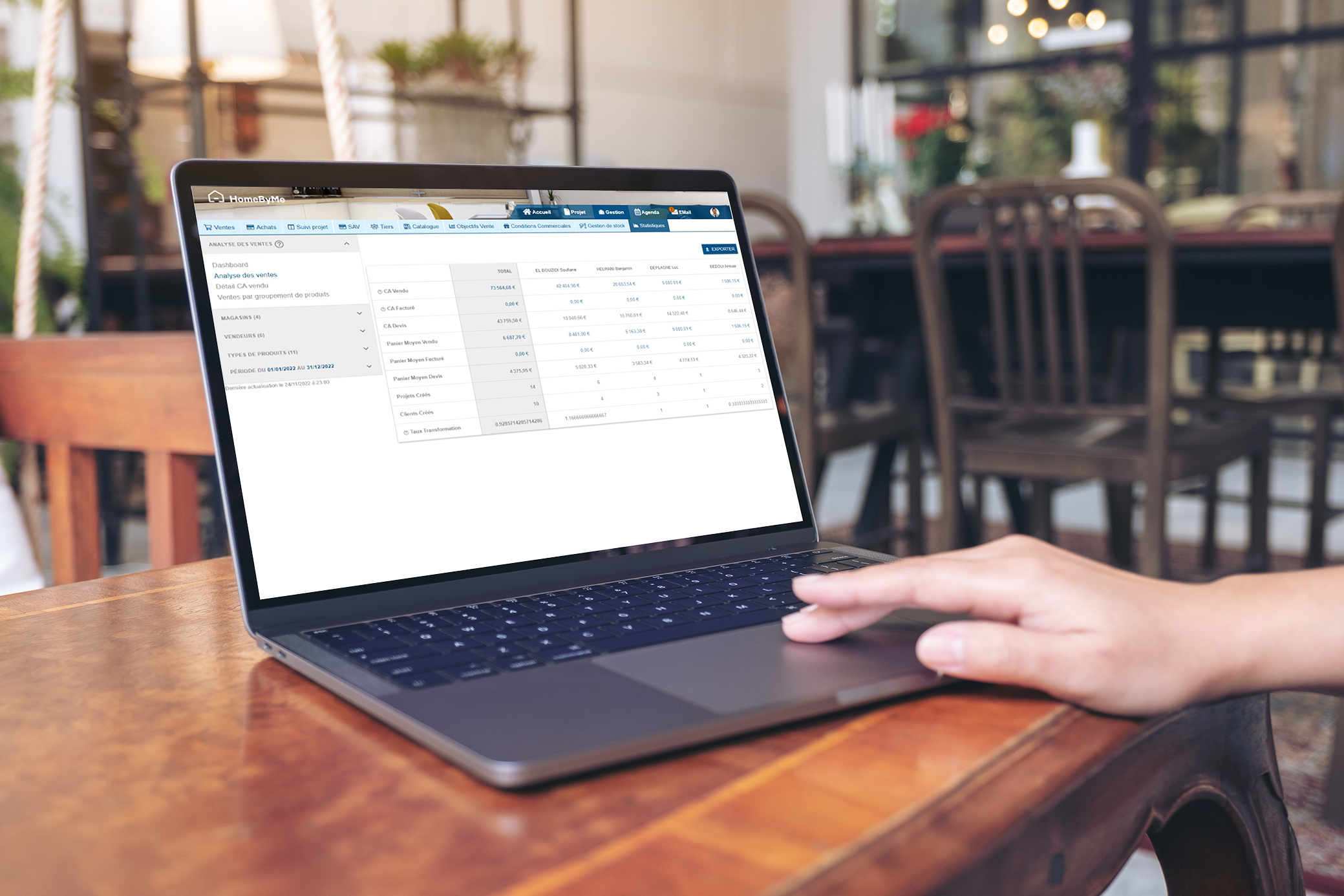Feature Spotlight: Electronic Signature and EDI for Our Sales Operations Management Solution
Streamline sales with HomeByMe’s Retail Operations: electronic signatures and EDI integration for faster approvals and efficient document handling in furniture and kitchen sales.
Just because we rarely discuss some features doesn’t mean they don’t exist.
So, in this article, we’ve decided to talk about two key features that are often overlooked.
Electronic signatures and document issuance in EDI format can be seamlessly integrated into the workflow for each of our clients using the Retail Operations sales management solution.
This is hugely Important for furniture and kitchen sales stores
Electronic Signature: Time Savings and Agility
The electronic signature allows for the instant signing of documents, eliminating the need for printing or in-person meetings, ensuring the integrity of an electronic document, authenticating its author, and making it legally binding.
Objectives and Features of Electronic Signatures
The electronic signature has three main objectives:
- Ensure the document's integrity, as mentioned above
- Confirm the author's identity
- Provide proof of consent
To be valid, it must meet the following criteria:
- Authenticity: The signatory must be clearly identifiable
- Non-reusability: The signature is tied to the signed document and cannot be transferred to another document
- Inalterability: Once signed, the document cannot be modified
- Non-repudiation: The signer cannot dispute their signature after signing
- Integrity: The signature cannot be forged, ensuring no one can impersonate the signatory
Many providers, such as YouSign, offer electronic signature services.
A Feature to Customize Based on Each Store Network’s Workflow
Company leaders and store network managers have sought to introduce this feature into their sales management software workflow. In the kitchen and furniture sector, client interactions are greatly facilitated, and quote approvals are faster, shortening the sales cycle.
In the HomeByMe Retail Operations solution, electronic signatures are integrated via an API compatible with all existing systems. This API is provided by the HomeByMe team to allow retailers to integrate and customize it. Signatures can be activated for quotes only or for other documents (e.g. quotes, store invoices, and supplier invoices). They can appear on the first page, the last, or even every page. Pop-ups display as overlays within the Retail Operations software, keeping users in the same window.
There are two common scenarios for using electronic signatures:
- Once a quote is approved by a client, the salesperson can send an email with the signature instructions to confirm the order.
- If the client is in-store, they can sign electronically directly from the salesperson’s interface, avoiding paper and fully digitizing the process.
EDI: A Standardized Format for Automated Transactions
EDI, or Electronic Data Interchange, is a standard format that enables the exchange of documents such as purchase orders or plans.
Objectives and Features of EDI
EDI is designed for inter-company transactions and communications. This means that information, like a purchase order, is transferred directly from one company’s software to another. Most often, companies using EDI are business partners, particularly within supply chains.
The advantages of using EDI include:
- Time and cost savings by automating previously manual and paper-based processes.
- Increased productivity by quickly processing a higher volume of documents.
- Error reduction as EDI data standards are strict, ensuring proper formatting before integration into business applications.
- Enhanced customer experience through efficient transaction execution that results in faster delivery times.
This feature is integrated into the HomeByMe Retail Operations solution, a sales operations management and CRM software specifically developed for the furniture and kitchen sectors.
EDI for Transmitting Purchase Orders and Kitchen and Furniture Plans Directly to the Factory
When a salesperson finalizes a client project, the Retail Operations solution allows them to generate and store all essential project documents.
Before sending purchase orders and plans to a supplier, the salesperson must first ensure the supplier is authorized to receive documents in EDI format. If authorized, the process involves:
- Accessing the client’s project.
- Selecting the option to convert the client’s purchase order for the manufacturer.
- Ensuring all files to be transmitted are correct (e.g. front views and various kitchen element plans).
- Generating documents for EDI conversion.
- Sending the documents to the supplier directly or by email from the Retail Operations interface.
Each client can request to activate this feature in their interface and opt for document exchanges in EDI format.
For more information on available features in Retail Operations or to request a personalized demo, contact us here!
Discover more
How can we help you?
To learn more about our solutions and discuss your business needs, fill out this form and we’ll be in touch.
